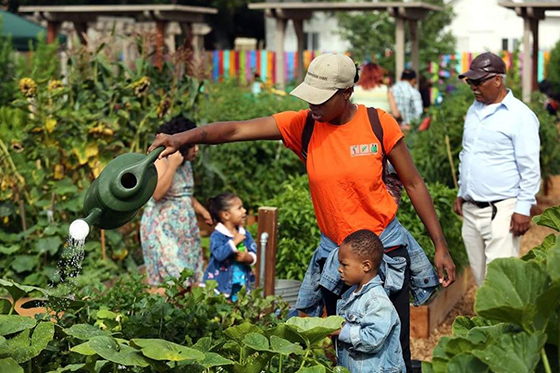🌾 The Power of the Commons
What are “Commons”?
The commons, are resources and practices shared by a community, managed collectively, and protected for the benefit of all.
These may include:
- 🌱 Natural elements (water, land, forests, air)
- 🎓 Cultural knowledge (oral traditions, medicinal practices)
- 💡 Digital and creative resources (open-source software, Wikipedia)
- 🧑🏾🤝🧑🏿 Spaces of collective decision-making and belonging
But more than just “things”, commons are relationships. They reflect how people coexist, care and co-manage life together.
From Elinor Ostrom to Latin American thinkers
The concept of the commons gained global visibility thanks to the Nobel Prize-winning economist Elinor Ostrom, who proved that communities can sustainably manage shared resources without privatization or state control.
In Latin America and the Global South, thinkers like Boaventura de Sousa Santos, Cândido Grzybowski, and Evelina Dagnino emphasized that commons are not only economic — they are political and symbolic, linked to autonomy, identity and resistance.
In Brazil, commons show up in:
- Quilombos and Indigenous territories
- Community-managed forests
- Collective fishing zones and water-sharing practices
- Urban gardens, cultural collectives, cooperatives
Why the Commons Matter Today
In the face of climate change, inequality and resource exploitation, commons offer an alternative logic: one that centers care, interdependence and reciprocity.
They invite us to ask:
- Who has access?
- Who decides?
- Who cares for this — and how?
Commons are living systems. When managed with solidarity and transparency, they regenerate both nature and relationships.
🌿 Commons at Yllá Regenera
At Yllá Regenera, the idea of the commons is at the heart of everything we do.
We believe that land, culture, water, knowledge and life itself are not commodities — they are sacred shared responsibilities. We activate commons through:
- Community festivals
- Agroecological practices
- Participatory governance models
- Educational spaces that honor ancestral and local knowledge
- To care for the commons is to care for the future.
📖 References
Ostrom, Elinor. Governing the Commons. Cambridge University Press, 1990.
De Sousa Santos, Boaventura. The End of the Cognitive Empire. Duke University Press, 2018.
Dagnino, Evelina. Cultura política e participação no Brasil. São Paulo: Paz e Terra, 2004.
Bollier, David; Helfrich, Silke. Free, Fair and Alive: The Insurgent Power of the Commons. New Society Publishers, 2019.
Grzybowski, Cândido. Cidadania e bens comuns: novos caminhos. Ibase, 2010.


Comments
Post a Comment